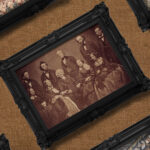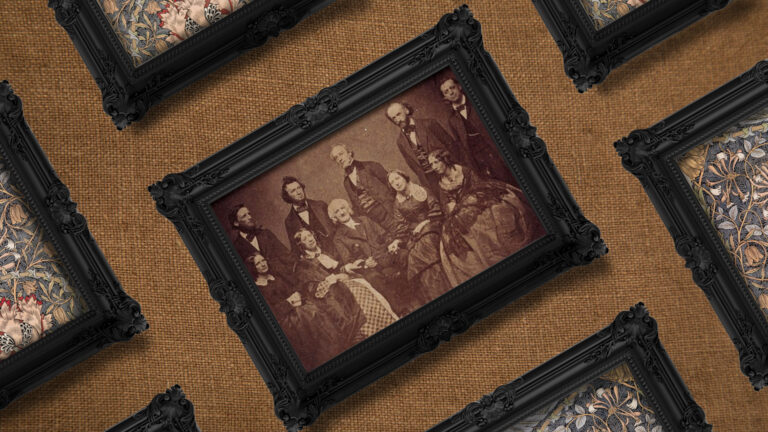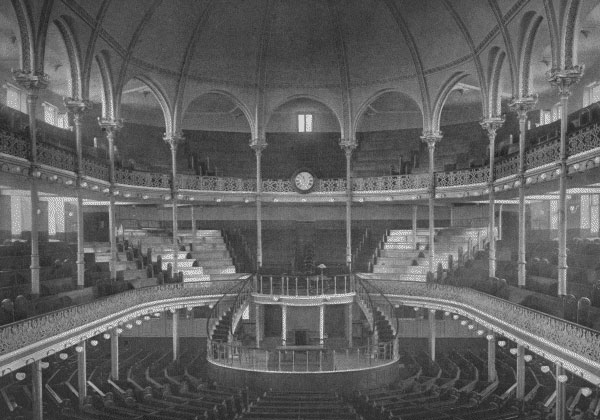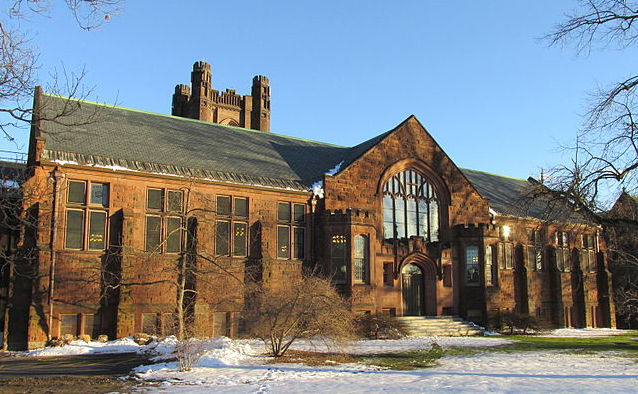The question raised by my new book, Who Is an Evangelical?, is a historical as much as a contemporary one. One of the most obvious changes to the term historically is that until the 1800s, “evangelical” was almost always used as an adjective, not a noun, as in “evangelical sermon” or “evangelical book.” The term “evangelical” in English dates back at least to the 1520s, and it shows up in the writings of Sir Thomas More and in translations of Erasmus. A search on the word “evangelical” gets more than 22,000 hits in more than 5,500 sources in Early English Books online, which contains editions of most books published in English from 1473 to 1700.
The word “evangelical” was often a synonym for “gospel,” which made sense because euangelion in Greek means “good news.” But the term “evangelical” did both pick up in popularity, and in focus of meaning, around the time of the Great Awakening in the 1740s. Consider the Google Ngram chart for the words evangelical, evangelicals, and evangelicalism:
A few caveats about Ngram charts are in order. They give interesting information about the frequency of search terms, but they are definitely not precise. Critics often note that the Ngram sources searched by Google become increasingly dominated over time by scientific journals, for instance, where one would not expect to find a term like evangelical show up much.
Nevertheless, we see that “evangelicals” and “evangelicalism” are terms mostly appearing in the second half of the 20th century. There was a steady increase in familiarity with the term “evangelical” through about 1755, then it dropped and leveled off for about four decades. Then in the era of the Second Great Awakening it went through another spike, before declining by percentage steadily until about 1940, when it began a slow rise again. I suspect that the difference between the term’s prevalence in 1850 and in 2000 would not be as sharp if you could account for the percentage of STEM-related publications between the two dates.
The Ngram sources are in English, and are not just from American publications, but we can assume an increasing domination of American publishers in the chart. To get a feel for the use of “evangelical” over this time period, let’s consider anecdotally how “evangelical” is being used in or around three years—1750, 1850, and 1950. (Another caveat: the term “evangelical” often meant “Protestant” or “Lutheran” in a German-background context, but that strain of its use is not my focus here.)
In 1750, the great revivals of George Whitefield were largely in the past, although he still drew large crowds, and one could find regional instances of revival in between the First and Second Great Awakenings. I have spoken elsewhere of a “long” First Great Awakening to account for the continuity of revival. The output of the presses in America and Britain remained fairly small in those days, and the combined hits on “evangelical” in American and British digital collections in 1750 is less than 100 total. Many of the uses go back to the generic use of evangelical as “gospel” or “biblical.” But you can also see more specific uses of the term in ways that suggest the emergence of a distinct “evangelical” movement.
For instance, a group of evangelical dissenters in a Framingham, Massachusetts, church in 1750 protested against their liberal pastor’s preaching, saying that he avoided those doctrines “which show the difference between that faith, that repentance, and that obedience which is merely legal[istic], superficial, and servile, and that which is evangelical.”
Similarly, the Baptist John Gill, a Calvinist supporter of Whitefield’s preaching, gave a funeral sermon for a minister colleague in 1750, praising the deceased pastor for giving sermons that were “spiritual, savory, and evangelical, having a tendency to awaken the minds of sinners.”
By 1850, the options for the use of “evangelical” had increased tremendously, including societies and periodicals with the word “evangelical” in them. References to “evangelical” that year now ran into the thousands, but the word still usually functioned as an adjective. David Benedict’s classic history of Baptists did speak of “evangelical Christians,” however. And the London-based Wesleyan-Methodist Magazine spoke of the “evangelical method of salvation” and the “evangelical doctrine of faith.”
By 1950, the use of the word had changed dramatically, especially because of the founding of the National Association of Evangelicals (NAE) in 1942. “Evangelical” was coming to denote conversionist Protestants who were not fundamentalists. Although the origins of the term “neo-evangelical” are debated, many believe that Harold John Ockenga coined the term in an address at the new Fuller Seminary in 1947. Fuller itself had been founded to represent the new evangelicalism. Then in 1949, Billy Graham rose to prominence, and by 1950 he had become the undisputed standard-bearer for what people saw as evangelical faith.
Carl Henry, who along with Graham and Ockenga was one of the key players in the articulation of the new evangelicalism, gave the impression that using “evangelical” as a noun in the 1940s was almost a neologism. In George Marsden’s book Reforming Fundamentalism, Henry told Marsden that in the 1930s conservative Protestants all largely accepted the label “fundamentalist,” and that “the term ‘evangelical’ became a significant option when the NAE was organized.” Indeed, Henry claimed that nobody really wanted to self-identify as evangelicals until the founding of the NAE, because the term seemed passe. (Thus Ockenga’s “neo-evangelicals,” which at least made the term sound fresh.)
In summary, the term “evangelical” itself was widely known on the eve of the Great Awakening, but it tended to be synonymous with “biblical” or “gospel.” During the Great Awakening it began also to describe the supporters of the revivals and of Whitefield. By 1850, it had probably become the most widely used term to describe conversionist, revivalist Protestants in Britain and America, but it was still often used as an adjective, though sometimes it would appear as a noun too.
There were two key turning points in the modern use of the term “evangelical.” One was the founding of the NAE, which followed a decline in the term’s use and also definitively moved toward its usage as a noun, rather than an adjective.
The other turning point for the word came in 1976. That year, Jimmy Carter, a self-described evangelical, won the presidency, and Newsweek declared 1976 the “year of the evangelical.”
Of more enduring importance, Gallup for the first time began asking survey respondents in 1976 if they were “evangelical” or “born again” and pairing that response with political behavior. Of course, the rise of the Moral Majority in 1979 was a decisive moment in the politicization of the word “evangelical,” too, but once “evangelical” became a standard category in polling, the public perception began to shift inexorably toward a political understanding of what it meant to be an evangelical. By the 2010s, most casual American observers had come to assume that evangelical meant “white religious Republican.”
Sign up here for the Thomas S. Kidd newsletter. It delivers unique content only to subscribers.

















